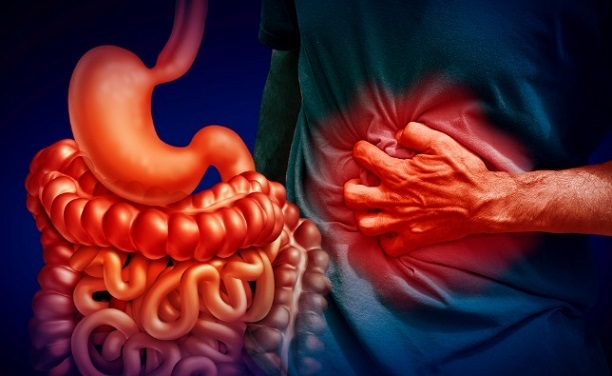Nikhil Prasad Fact checked by:Thailand Medical News Team Jul 15, 2025 7 months, 1 week, 1 day, 22 hours, 5 minutes ago
Medical News: Researchers Explore How Gut Hormones Could Help Control Inflammatory Bowel Disease
A new review by scientists from Tufts Medical Center in Boston and Ohio University’s Heritage College of Osteopathic Medicine reveals promising insights into how gut-derived hormones may be used to treat inflammatory bowel disease (IBD), including Crohn’s disease and ulcerative colitis. IBD has traditionally been managed using anti-inflammatory medications, steroids, immunomodulators, and biologics. However, these come with significant side effects and limitations. This
Medical News report highlights how naturally occurring gut hormones—like GLP-1, GLP-2, GIP, PYY, CCK, and APOA4—could offer a safer, more targeted approach.
 How Obesity and Diet Worsen IBD
How Obesity and Diet Worsen IBD
Obesity is now common among IBD patients. Excess fat promotes inflammation and alters gut bacteria, damaging the intestinal barrier. High-fat diets increase harmful bacterial products and reduce protective compounds, leading to a leaky gut, inflammation, and worsening IBD symptoms. This inflammation often begins in the gut but spreads throughout the body, affecting the immune system and contributing to disease progression.
GLP-1 and GLP-2 Show Powerful Gut Benefits
Glucagon-like peptide-1 (GLP-1), known for helping control blood sugar and reducing weight, also improves gut health by strengthening the intestinal barrier and lowering inflammation. In mouse models, GLP-1 reduced the severity of colitis and protected gut tissues. Synthetic GLP-1 drugs like liraglutide and semaglutide, already used for diabetes and obesity, may be repurposed for IBD, although side effects like nausea and motility issues must be considered.
Its sister hormone,
GLP-2, promotes intestinal cell growth and repair. It reduces cytokine levels and has shown positive results in clinical trials. A drug version of GLP-2 called teduglutide induced remission in 50% of Crohn’s disease patients and helped heal gut tissues, suggesting strong potential as a future IBD therapy.
Other Hormones Play Unique Anti-Inflammatory Roles
GIP (glucose-dependent insulinotropic polypeptide) improves fat and sugar metabolism and appears to reduce systemic inflammation. It activates immune cells and may support intestinal healing, but more research is needed.
Peptide YY (PYY) slows gut motility and suppresses appetite. It also helps reduce gut inflammation and boosts protective immune responses. In animal studies, it reduced damage in colitis models and lowered inflammatory markers like TNF-α and IL-6.
Cholecystokinin (CCK), a hormone that aids digestion and appetite regulation, has shown the ability to lower inflammation and promote healing in the gut. It can reduce immune system overactivation and may help restore intestinal balance.
Apolipoprotein A4 (APOA4), which helps transport fats, has powerful anti-inflammatory and antioxi
dant properties. In studies, it improved symptoms of experimental colitis and helped preserve the gut lining.
Combining Gut Hormones May Amplify Healing
The researchers found that combinations of these hormones might be more effective than using them alone. For example, GLP-1 and PYY together have a stronger appetite-reducing effect and improved insulin sensitivity. PYY can stimulate APOA4 production, and APOA4 can enhance CCK activity. These synergistic interactions might offer a new frontier in IBD treatment.
Conclusion
This study underscores the growing evidence that gut hormones play vital roles in reducing gut inflammation, healing the intestinal lining, and regulating metabolism. While early data are encouraging, especially in animal models, more clinical studies are needed. These findings pave the way for safer, more targeted therapies that go beyond traditional anti-inflammatory drugs and may benefit patients with both IBD and obesity-related complications.
The study findings were published in the peer reviewed journal: Biomolecules
https://www.mdpi.com/2218-273X/15/7/1013
For the latest on IBD, keep on logging to Thailand
Medical News.
Read Also:
https://www.thailandmedical.news/news/brazilian-researchers-identify-emerging-fungal-species-and-herpesviruses-in-the-oral-microbiota-of-ibd-patients
https://www.thailandmedical.news/news/understanding-the-link-between-oral-microbiota-and-inflammatory-bowel-disease
https://www.thailandmedical.news/news/understanding-the-impact-of-inflammatory-bowel-disease-beyond-the-gut-extraintestinal-manifestations
